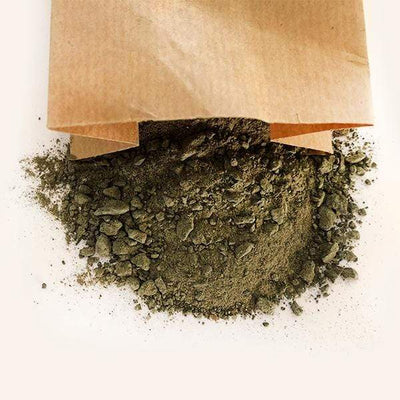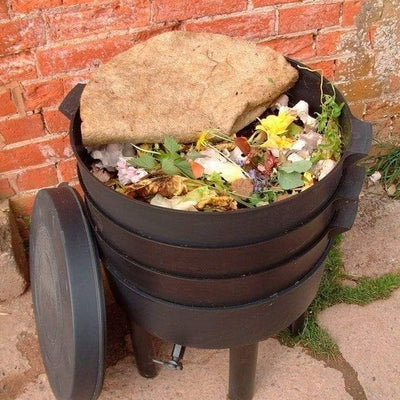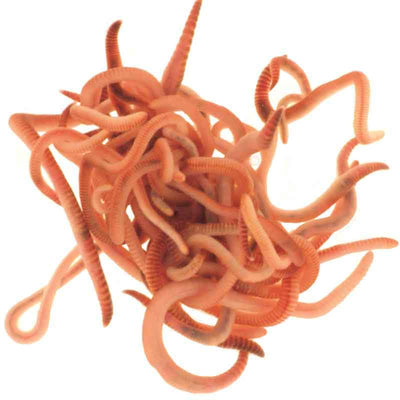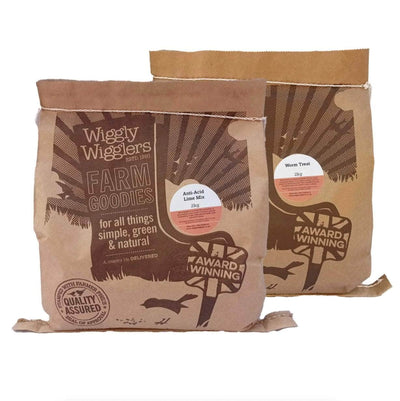Healthy soil is the foundation of life. It’s not just dirt—it’s a living ecosystem that feeds us, filters water, stores carbon, and sustains biodiversity. One teaspoon of soil contains more living organisms than there are people in the world. But as farmers are well away there’s a hard truth: our soils are depleting, and the environmental impact of ignoring kitchen and garden waste is bigger than most realise.
Each time food scraps or garden clippings go to landfill, we’re wasting precious nutrients, creating methane, and missing a powerful opportunity to regenerate our soil.
![]() Why NOT to Send Kitchen Waste to Landfill or Central Composting Facilities:
Why NOT to Send Kitchen Waste to Landfill or Central Composting Facilities:
When waste goes to landfill, it decomposes without oxygen, emitting methane and contributing to climate change. Even sending it to central composting means the madness of extra transport emissions whilst at the same time we lose the nutrients that could enrich our own soil.
Let’s just treat “waste” as the resource it definitely is and deal with it right where we are.
Composting at Home isn’t just for avid gardeners; it’s about everyone doing a small part to restore nature’s balance. By dealing with food waste on our doorsteps, we’re helping build nutrient-dense, resilient soil. Healthier soil means stronger plants, less need for synthetic fertilisers, and lower water usage.

![]() Composting Methods: Traditional, Bokashi, and Worms
Composting Methods: Traditional, Bokashi, and Worms
Each of these methods has unique benefits, and all are accessible at home:
- Traditional Composting: Balance greens (nitrogen) and browns (carbon) to create nutrient-rich soil. Microbes break down waste aerobically (with oxygen), producing heat that kills many pathogens. Turn regularly to keep it active. More Info
- Bokashi: This Japanese fermentation method uses specific microbes in an anaerobic (oxygen-free) environment to break down all types of kitchen waste—even challenging items like meat and dairy—into a nutrient-rich, soil-friendly material. The result? A quick, low-odour process that retains more nutrients than traditional composting. Once fermented, the bokashi material can be directly added to soil or incorporated into a compost heap, supercharging it with nutrients and beneficial microbes. Learn More
- Vermiculture (Worm Composting): Using red worms to turn food scraps into powerful worm castings—a rich, biologically active fertiliser. Worm castings improve soil structure and are a nutrient-dense, sustainable soil enhancer. Buy Worms
Adopting Regenerative Farming Principles at Home
Regenerative farming is all about soil health, biodiversity, and resilience, with minimal intervention, and it’s what we are putting into practise at Lower Blakemere (with the help of #regenben and The Duchy of Cornwall). Imagine if every household took on the principles of regenerative farming: our collective impact would be monumental. Managing our own organic waste helps build soil, feeds beneficial microbes, and creates mini regenerative ecosystems in our own space.
If every home composted, we’d not only see healthier gardens and reduce landfill emissions but collectively strengthen urban and suburban ecosystems—one handful of soil at a time.
So, how about…
- Don’t send kitchen waste to landfill; compost it at home.
- Choose a composting method that works for your lifestyle—traditional, bokashi, or vermiculture (or all three).
- Build soil health, reduce waste, and adopt regenerative practices.
Healthier soil means a healthier planet, and it starts with what we choose to do with our own waste. The time to take action is now—your garden, community, and planet will thank you.
#SoilHealth #Composting #RegenerativeFarming #Sustainability #ClimateAction #SoilScience #lowerblakemerefarm #wigglywigglers






